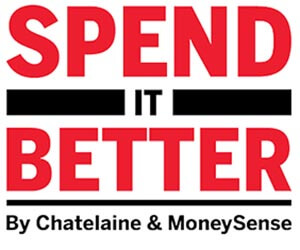Are budgeting apps like Mint safe to use?
Mint and PocketGuard can make budgeting easy, but they require access to your banking information
Advertisement
Mint and PocketGuard can make budgeting easy, but they require access to your banking information

MORE: How a single mom spends $600 a month on groceriesSince then, the negative noise has died down, and Mint, which comes from Intuit, the same company behind Quickbooks and Turbotax, has become one of the most popular budgeting apps, with over 10 million users. But have these apps become more secure, or did people simply become more comfortable with them? Should consumers be worried?
READ: Envelope budgeting 2.0: How this system works“The user having a weak password, using the same password across multiple services, clicking on phishing emails and giving up their password that way — those are more common types of risks,” says Cameron, adding that consumers should be doing their due diligence to ensure their information remains secure. He recommends that users set up a two-step authenticator to log in, which mitigates the risk of someone guessing your password. PocketGuard uses this form of double protection by asking users to plug in a randomly produced pin code and password combination every time they want to access their account. In the event that your account is hacked, both Mint and PocketGuard are designed to be read-only, which means that you can’t actually move money into different accounts — and neither can your hacker. They’ll have access to your data and see how much money you have in your account, but won’t be able to do much with it. Your full financial account numbers, credit card usernames and passwords aren’t displayed.
READ: This couple can’t stick to their $8,000 monthly budgetIf a breach occurs, the app company will usually inform the client about what their next steps will be, which often includes offering a credit monitoring program to ensure that the customer isn’t being affected financially and instructions to change their bank password. As of November 1, Canadian companies will be legally required to let you know in a timely manner if your privacy has been breached. “Ultimately, any financial loss suffered by the individual would then be borne by the application, so you hope at that point they’ve got proper insurance in place,” says Ahmad.
 This post is part of Spend It Better, a personal finance collaboration between Chatelaine and MoneySense about how to get the most for your money. You can find out more right here.
This post is part of Spend It Better, a personal finance collaboration between Chatelaine and MoneySense about how to get the most for your money. You can find out more right here.
Share this article Share on Facebook Share on Twitter Share on Linkedin Share on Reddit Share on Email